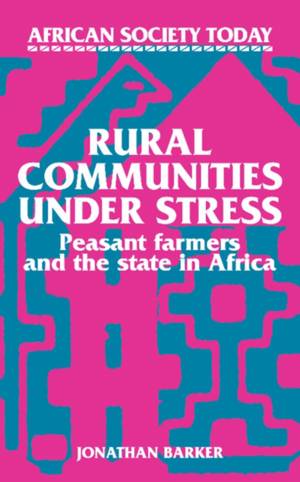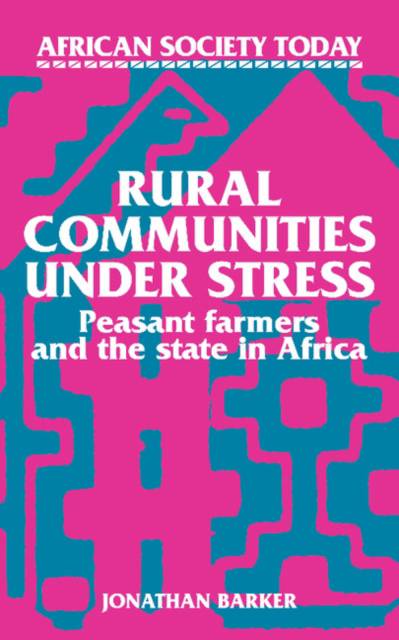
Bedankt voor het vertrouwen het afgelopen jaar! Om jou te bedanken bieden we GRATIS verzending (in België) aan op alles gedurende de hele maand januari.
- Afhalen na 1 uur in een winkel met voorraad
- In januari gratis thuislevering in België
- Ruim aanbod met 7 miljoen producten
Bedankt voor het vertrouwen het afgelopen jaar! Om jou te bedanken bieden we GRATIS verzending (in België) aan op alles gedurende de hele maand januari.
- Afhalen na 1 uur in een winkel met voorraad
- In januari gratis thuislevering in België
- Ruim aanbod met 7 miljoen producten
Zoeken
€ 60,95
+ 121 punten
Omschrijving
First published in 1990, Rural Communities under Stress goes behind the crises of famine and poor agricultural production to examine the forces and pressures that can affect peasant farming communities in sub-Saharan Africa. Drawing on a wide range of case studies by anthropologists, political scientists, sociologists, and economists, the book shows that peasant farmers have ways of defending their interests. Cases from Senegal, Tanzania, Mozambique, Ghana, Kenya, and Uganda are given as concrete examples of ways peasant farming communities cope with the stresses of economic exploitation, political subordination, and demographic and ecological pressure. Even when they are not successful, peasant farmers are far from being passive victims. The book examines in direct and clear language the major arguments about the basic nature of Africa's rural crisis put forward by powerful agencies of international assistance and influential academics.
Specificaties
Betrokkenen
- Auteur(s):
- Uitgeverij:
Inhoud
- Aantal bladzijden:
- 240
- Taal:
- Engels
- Reeks:
Eigenschappen
- Productcode (EAN):
- 9780521313582
- Verschijningsdatum:
- 1/02/1990
- Uitvoering:
- Paperback
- Formaat:
- Trade paperback (VS)
- Afmetingen:
- 123 mm x 185 mm
- Gewicht:
- 222 g

Alleen bij Standaard Boekhandel
+ 121 punten op je klantenkaart van Standaard Boekhandel
Beoordelingen
We publiceren alleen reviews die voldoen aan de voorwaarden voor reviews. Bekijk onze voorwaarden voor reviews.









